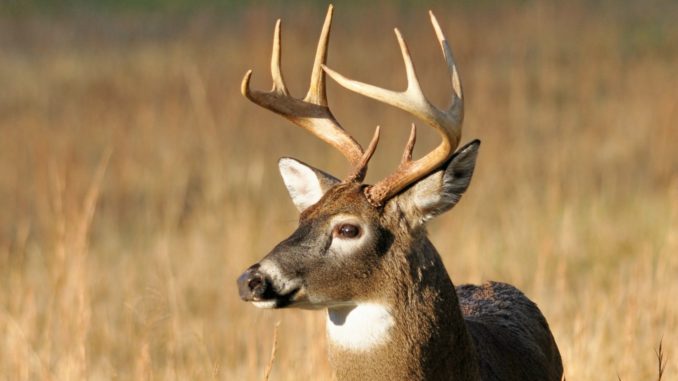
Co-chair of N.C. House committee doesn’t allow any rebuttal from biologists
A select committee of the N.C. House listened on Tuesday as four deer-farmers from North Carolina and two out-of-state supporters of deer farming castigated the N.C. Wildlife Resources Commission’s management of state deer farms and their owners without anyone associated with the Commission getting a chance to respond.
With the hearing almost three hours old, Rep. Ken Waddell (D-Burke/Columbus/ Robeson) asked Rep. Roger West (R-Cherokee/Graham/Swain), the co-chair of the committee, if the 10-member panel would hear from people other than the deer farmers, clearly referring to members of the Commission and staffers who were in attendance.
“From what has happened back home, (deer-farm opponents) use intimidation, and I don’t intend to stand up here and be intimidated,” said an obviously agitated West.
When Waddell pursued the question, West responded, “If you have questions, submit them. But I’m not going to be intimidated.”
He then ended the hearing, leaving observers puzzled at his “intimidation” comments. He was unavailable for comment after the hearing.
Gordon Myers, the executive director of the N.C. Wildlife Resources Commission, said he could not comment on the hearing, which he attended along with six members of the Commission and more than a dozen Commission staff members.
Dick Hamilton, executive director of the N.C. Camo Coalition, didn’t know what West was talking about as far as “intimidation” but said his group had informed members and deer hunters across the state about the meeting’s agenda.
“It’s our job to do that. We have a web site and send ‘blast’ emails about wildlife issues; it’s what we do,” he said. “Maybe deer hunters contacted Mr. West, and that’s what he meant about intimidation.”
If anyone might have felt intimidated, it would be Commission members and staff, as West paraded six deer-farm supports to the microphone for the meeting, which ended just short of three hours.
One, Wayne Kimrey, a Randolph County deer farmer, told about settling a lawsuit against the agency after wildlife-enforcement officers and sheriff’s deputies visited his deer pens on Sept. 20, 2011, and killed three fallow deer and one whitetail deer.
A second, John Charles of Delta Wildlife Management, said Commission biologists in charge of deer and other “cervids” are unqualified, and that the Commission “seemed to be friends with a lot of … groups, activists and people with agendas,” later identifying them as the Quality Deer Management Association, the N.C. Wildlife Federation and the N.C. Camo Coalition.
Carl “Skip” West of Oklahoma, vice president of the North American Deer Farmers Association, touted the economic impact of deer-farming and high-fenced deer hunts. “It’s a $200 million agri-business in Oklahoma,” he said.
Tom Smith, the former CEO of Food Lion and a long-time financial backer of attempts to change deer-farm rules in North Carolina, called the Commission’s rules “onerous.” He said the Commission “knows very little about deer farming” and complained that “no other state has laws as stringent as North Carolina.”
Hamilton pointed out “each of the points (deer farmers) made could be rebutted, but no one is going to hear them now. The main point is the Commission has been successful in keeping CWD out of North Carolina.
“This was mostly a charade of disgruntled people who didn’t win” at an Oct. 30 meeting when the Commission voted not to allow didn’t allow more whitetail and elk farms but compromised by permitting more axis, red and fallow deer farms.
“All this (committee) can do now is send a report to the next (legislative) session. There’s not enough time left (in the current session) to do anything else,” Hamilton said.
When West gaveled the meeting to a close, items on the published agenda that were left undiscussed where the Commission’s fee schedule, staffing structure and enforcement authority, reports of wildlife enforcement officers’ abuse of authority, and whether the Commission’s executive director should be confirmed by the state legislature.




Be the first to comment